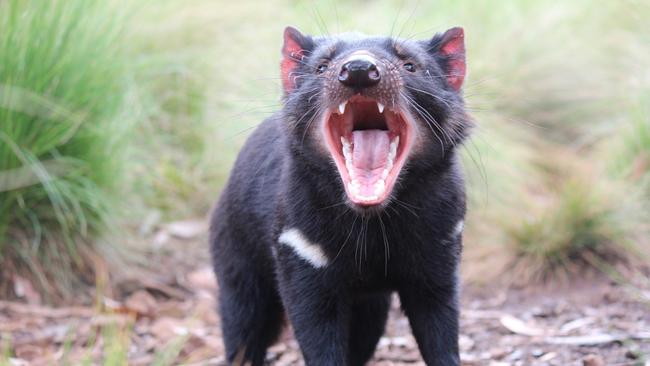Cholesterol pills could tackle cancer in devils, humans
Cholesterol drugs could help save the Tasmanian devil from extinction caused by tumours and may combat some human tumours, research suggests.

Cholesterol-lowering drugs could help save the Tasmanian devil from extinction from a spreadable tumour decimating the iconic species, and may combat some human tumours, new research suggests.
Chiefly conducted at the Queensland Institute of Medical Research Berghofer, the research found statins – commonly used to treat heart disease and diabetes – reduced growth in the devil tumours.
Devil Facial Tumour Disease, or DFTD, is a rare transmissible cancer that has wiped out an estimated 80 per cent of the endangered species since the mid-1990s, leaving less than 15,000.
While devils appear to be evolving quickly in response, and some show resistance, the lower numbers make local populations vulnerable to other threats, such as road kill, as well as inbreeding.
To date there has been no entirely effective vaccine or treatment, but the Berghofer findings suggest statins may be a promising option for further research.
“We found statins reduced the growth of the devil facial tumours in the laboratory,” Dr Manuel A. Fernández-Rojo said. “We believe more research should now be undertaken to see whether these cholesterol-lowering drugs could be used to inhibit, or at least slow, the growth of DFTD and hopefully help protect the species.”
Fellow lead researcher Dr Maria Ikonomopoulou said the findings could have implications for malignant and highly aggressive cancers in humans.
“We know statins work on tumour cells in lab experiments, so we now want to expand our study of the drugs in stopping the spread of cancer tumours,” Dr Ikonomopoulou said.
“Human cancer cells undergo similar metabolic adaptation to grow as those exhibited by DFTD cells in our research,’’ she said.
“This raises the question of whether statins, which are currently prescribed for the treatment of cardiovascular disease and diabetes in humans, could also be used to help treat very aggressive human cancers such as melanoma, pancreatic or colon cancer.”
The initial research, conducted with Spanish scientists, found the DFTD cells required a certain level of cholesterol to multiply, leading to the testing of statins.
DFTD, passed between devils when they bite each other during fighting and mating, spreads aggressively, causing a painful death from organ failure or starvation.
The live tumour cells are not recognised by the devils’ immune systems, preventing a natural immune response.




To join the conversation, please log in. Don't have an account? Register
Join the conversation, you are commenting as Logout